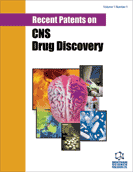Abstract
Neurodegenerative diseases constitute a major public health issue due to an increasingly aged population as a consequence of generally improved medical care and demographic changes. Current drug treatment of Alzheimer's disease (AD), the most prevalent dementia, with cholinesterase inhibitors or NMDA antagonists has demonstrated very modest, symptomatic efficacy, leaving an unmet medical need for new, more effective therapies. Drug development efforts for AD in the last two decades have primarily focused on targets defined by the amyloid cascade hypothesis, so far with disappointing results. In contrast, tau-based strategies have received little attention until recently despite that the presence of extensive tau pathology is central to the disease. The discovery of mutations within the tau gene that cause fronto-temporal dementia demonstrated that tau dysfunction, in the absence of amyloid pathology, was sufficient to cause neuronal loss and clinical dementia. This review focuses on emerging therapeutic strategies aimed at treating the underlying causes of the tau pathology in tauopathies and AD, including some targets with significant potential in the field and which might be on the verge of providing new treatment paradigms within the coming years. Among those strategies, immunotherapy approaches will be mostly discussed. An update on 2010 patents regarding different aspects of tau-based therapeutic strategies is also provided.
Keywords: Alzheimer's disease, dementia, drug discovery, neurodegeneration, tau protein, tauopathies, immunotherapy, aggregation, protein, microtubule-associated protein, microtubules (MT), spatial organization, axonal transport, organelles, isoforms, foetal brain, neurodegenerative tauopathies, phosphoprotein, cell death, senile plaques, amyloid, peptide, pathology, cholinesterase inhibitors, hyperphosphorylated, pugilistica, insoluble, Neuropathologically, neurofibrillary tangles, corticobasal degeneration, synaptic dysfunction, neurotoxic, monomers, oligomers, prefilaments, chloride methylthioninium, memory, encephalitogenicity, neurological deficits or axonal damage, edema, blood-brain-barrier, PATENTS, autophagy
 27
27





















